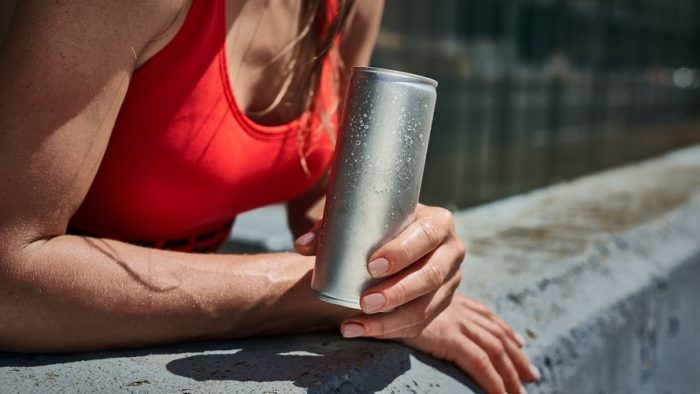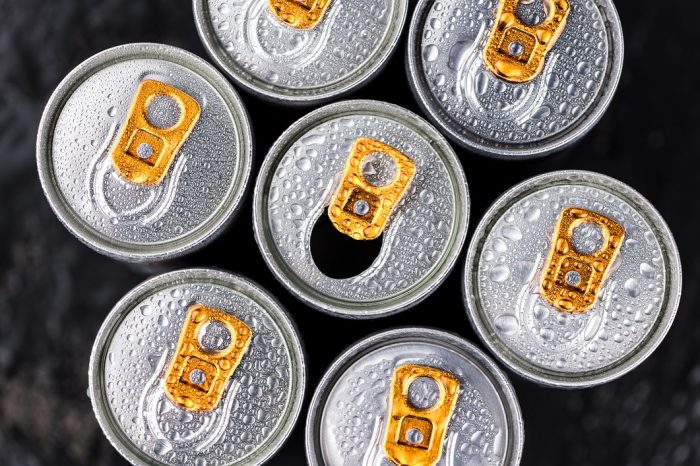There are plenty of energy drinks out there in the market. They are all marketed as a beverage that can boost energy, providing you with the strength and stamina to last longer, perform better, and not get tired quickly.
Most energy drinks typically contain high amounts of caffeine, sugar, and other stimulants. While energy drinks can help increase alertness and performance for some people. However, the downside is that it could have some adverse health effects, especially when consumed excessively.
As an aide memoir, energy drinks should not be consumed by children, pregnant women, or individuals with certain medical conditions such as heart disease or high blood pressure.
Remember that the type of energy drinks you like may differ from the next person, so it’s good to try different types to see which suits you best.
When looking for an energy drink that works for you, there are some things to look out for.
Caffeine content: Most energy drinks contain high levels of caffeine, which can cause nervousness, jitters, and in some cases, heart palpitations. Look for energy drinks with lower caffeine content or avoid them altogether if you are sensitive to caffeine.
How do I know if I am sensitive to caffeine?

There are several signs that you can look out for. These are:
You have difficulty falling asleep or staying asleep. Caffeine can disrupt your natural sleep cycle, making it hard to get a good night’s rest.
You often feel jittery and nervous after consuming caffeine. Caffeine stimulates the body’s central nervous system causing jitter and nervousness.
Your heart rate increases after caffeine intake. You’ll notice that your heart is beating faster than usual.
You also experience headaches.
You may also experience diarrhea, stomach pain, or nausea right after drinking beverages that contain caffeine.
If you experience any of these symptoms right after consuming caffeine, you may be sensitive to it. Try cutting back your caffeine intake to see if your symptoms improve.
Sugar content: Sugar is a common ingredient in energy drinks. Most contain high amounts of sugar, leading to other health problems such as weight gain, dental issues, and an increased risk of diabetes—the best way to find something low in sugar. Read the labels and choose energy drinks with no added sugar, such as lifeaidbevco.com or choose healthier alternatives, such as water or unsweetened tea.
Other ingredients: Some energy drinks contain elements such as guarana, taurine, or ginseng. Be cautious of the types and amounts of stimulants in energy drinks, and avoid consuming multiple products with different stimuli.
Pay attention to your medication: Energy drinks can interact with certain medications, including antidepressants and blood thinners. If you take any medication, talk to your doctor before consuming energy drinks.
Serving size: Knowing how much you consume and how often is beneficial. If you want to boost energy before a workout, pay attention to the serving size of each drink. Some energy drinks often come in large serving sizes, which can increase the risk of overconsumption. Consider dividing the glass into smaller portions if the serving size is too big.
What is an appropriate serving size for energy drinks?

The appropriate serving size for energy drinks depends on a variety of factors. Firstly, the brand, the time you consume it, your workout/exercise routine, and your body size.
The brand of energy drinks is the first factor. Most energy drinks come in eight-to-16-ounce cans and usually contain between 80 to 280 milligrams of caffeine per serving. Reading the label is your best bet to determine the appropriate serving size for your needs. It’s always good to start with a smaller amount first and build up from there.
The second factor to investigate is the recommended consumption of caffeine per day. Experts recommend consuming no more than 400 milligrams of caffeine daily, equivalent to drinking four cups of coffee. Again, remember that caffeine affects people differently, so if you are sensitive to caffeine, it’s best to start with a smaller serving size. Let your body get used to caffeine consumption and increase it over time, only if needed.
The third factor is to understand your body and your needs. Not everyone will need to consume an entire can of energy drinks; in the same way, not everyone will be sufficiently complete by eating the same number of calories. Depending on your weight and height and the intensity of your exercise routine, you need to match your consumption of energy drinks with these factors.
When you drink, energy drinks are also necessary. If you are sensitive to caffeine, drinking it close to bedtime might cause sleep disturbances. If you exercise late evening or night, and you prefer to drink energy drinks before your workout, then consume a small amount first instead of the entire can. Additionally, you also want to stay hydrated by drinking water.
Whatever your needs are regarding energy drinks, always aim to consume the recommended intake of one can per day. You should also consume water as much as possible because energy drinks can dehydrate because of their sugar content and high caffeine.
How to balance your consumption of drinks before and after a workout?
Energy drinks are ideal for pre-workout, and protein shakes are an excellent way to replenish your body post-workout. Protein shakes consumed within 30 minutes to an hour after a workout
can help your body replenish glycogen stores, and it will also help to repair muscle tissue that could have been damaged during exercise.
However, drinking water should always be an important element no matter what the event or time of day. Drinking water is essential to replace lost fluids during exercises, maintain healthy hydration levels, and replenish electrolytes such as potassium, sodium, and magnesium. Plus, drinking water aids recovery and reduces metabolic waste that could build up during exercise. Drinking water regularly is essential for overall health and well-being, as it helps to maintain proper bodily functions, speed up recovery and prevent dehydration-related health issues.




